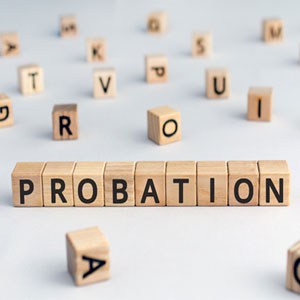 This article offers key insights into the probate process in Florida, such as:
This article offers key insights into the probate process in Florida, such as:
- What probate is and why it is important and necessary in Florida,
- What assets are impacted by the Florida process and how to protect them, and
- How long the process lasts and how it can be avoided.
What Is Probate And Why Is It Necessary In Florida?
Probate is the simple legal process of getting the property that is owned by a deceased person out of their name and possession.
Put simply, a deceased person cannot legally own property. If their name is on a deed, that needs to be fixed. However, because a deceased person can’t sign a deed transfer, the property is, for all practical purposes, stuck in legal limbo until the deceased’s name is off the property.
Probate is the process of removing the deceased person’s name and putting a living person’s name in their place. That way we have someone who can sign off, sell the property, or own it and do something with it, whatever they wish.
It benefits no one to have properties sitting around unowned and unused because the person who owned them has passed away. That is why probate is necessary in Florida and in the rest of the US.
What Assets Are Subject To Probate In Florida?
Most assets can be or will be subject to probate if they are in the deceased’s name. Often the primary concern during probate is what assets in an estate can be subject to creditors.
In probate, after someone passes on, their estate can have debts as well as assets. In other words, they have to pay off creditors to settle up before we can move the assets to a living person’s name.
How Can Assets Be Protected From Creditors During Probate?
Ideally, the careful process of estate planning will minimize the amount creditors can claim. You want to make sure that every asset that is not subject to being attacked by creditors is accounted for.
In Florida, a commonly used tool is the notion of homestead. Someone’s primary residence, or homestead, is not subject to claims by creditors who do not have a direct interest in the property.
Some examples of debts that would need to be settled by the estate are…
- A mortgage,
- An HOA lien,
- A lien for a roof repair or other fixtures, or
- Certain property taxes.
Some examples of debt that creditors would not be able to attack the homestead in order to recover are…
- Credit cards,
- Medical bills, and
- Unsecured personal loans.
Other things that creditors can attack are assets that we try to remove from the estate before the person’s death, with some exceptions and conditions. For example, bank accounts that are jointly owned or have a pay-upon-death clause attached to the bank account, which is automatically removed from the estate upon death.
That is often the objective: to remove as many items of value from the estate as possible that are subject to creditor attack.
How Long Does The Probate Process Typically Take In Florida?
The probate process takes, on average, no more than a year. By law, you have 12 months to get it done, but you can always ask for a little more time if needed.
For most people, it will not take that long to wrap the whole estate up, as they just have a primary residence or homestead, which can be removed from the estate proceedings fairly quickly. After you file a probate action, if the deceased owned a home or a property that they lived in as their primary residence, you can ask the court to file a petition for homestead exemption.
Now that property can be sold during the probate action, which allows the estate to sell it and have access to some capital. Because the homestead is not subject to creditor attacks unless it is someone who has a direct interest in the property, you will be ready to move on.
How Can The Probate Process Be Avoided In Florida?
With the right estate planning preparation, an individual can remove all their assets from their ownership before death, thus avoiding the need for any probate process at all.
There are several ways of doing this. For most people, you can simply do deed alterations. You can do a ladybird deed to have your property transferred automatically upon your death to some other person. For example, married parents can set up a deed to pass the property on to their child. As soon as you die, automatically the property is transferred to your child and they do not need to go through probate.
You can do the same thing with your bank accounts. You can have it paid upon death, as an attachment to your bank documents or your bank accounts. As soon as you pass away, automatically they will just go to whomever you designate as your recipient upon your death.
Thus for most people, with a little practical estate planning, there will be no need for probate. Whatever belongings are left will be minimal, and most people would not even need to deal with that. After someone is dead, however, it is too late. Estate planning needs to be done well before you die.
For more information on The Process Of Probate In The State Of Florida, an initial consultation is your next best step. Get the information and legal answers you are seeking by calling (850) 266-7822 today.
